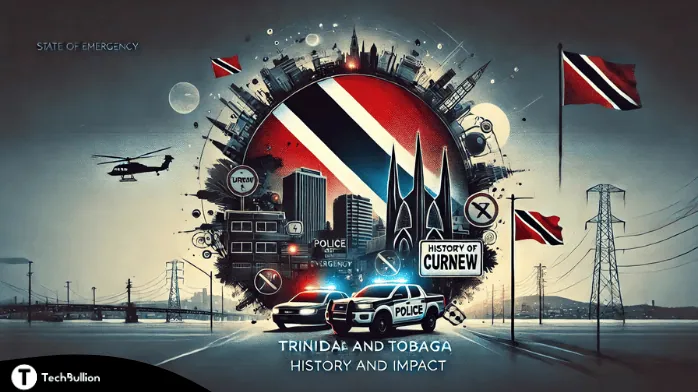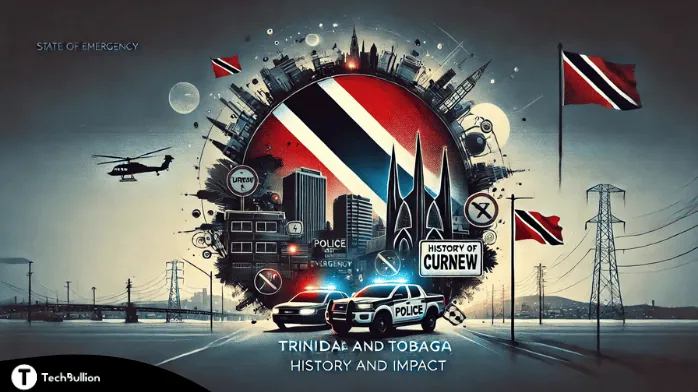Understanding the Trinidad and Tobago State of Emergency


Trinidad and Tobago State of Emergency, a twin-island Caribbean nation, has long been celebrated for its vibrant culture, natural beauty, and diverse population. However, like any country, it faces social, economic, and security challenges. One measure the government has occasionally employed to address crises is declaring a state of emergency. The term itself carries a weight of urgency and gravity, signaling extraordinary circumstances that require immediate and decisive action.
In this article, we’ll explore the historical and contemporary instances of the Trinidad and Tobago state of emergency, analyze its implications, and delve into its impact on citizens, governance, and international perception.
What is a State of Emergency?
A state of emergency is a temporary measure implemented by a government to respond to significant threats, whether natural disasters, social unrest, or national security issues. Under such a declaration, authorities are granted expanded powers, which may include curfews, restrictions on movement, suspension of certain rights, and increased authority for law enforcement and military personnel.
In Trinidad and Tobago, states of emergency are declared under the authority of the Constitution, specifically to address situations that pose a threat to public safety or national security.
Historical Context of Trinidad and Tobago States of Emergency
The 1970 Black Power Revolution
One of the most notable states of emergency in Trinidad and Tobago’s history occurred in 1970 during the Black Power Revolution. This movement, inspired by global civil rights activism, sought to address racial inequalities, economic disparities, and systemic injustice in the nation.
Protests and demonstrations escalated, leading to concerns about social stability. In response, the government declared a state of emergency, detaining activists and deploying security forces to maintain order. While the measure quelled immediate unrest, it also highlighted the deep-seated issues that fueled the movement.
1990 Coup Attempt by the Jamaat al Muslimeen
In July 1990, Trinidad and Tobago experienced a shocking coup attempt by the Jamaat al Muslimeen, an Islamist group led by Yasin Abu Bakr. The group stormed Parliament, taking the Prime Minister and other officials hostage while holding citizens in a state of terror for six days.
The government declared a state of emergency to restore order and regain control. This period remains one of the most traumatic in the nation’s history, underscoring the fragility of democratic institutions and the need for robust national security measures.
Crime Waves and Gang Violence in the 21st Century
In more recent years, states of emergency have been declared in response to escalating crime and gang violence. Trinidad and Tobago, like many nations, has grappled with issues such as drug trafficking, gang rivalries, and violent crime.
In 2011, Prime Minister Kamla Persad-Bissessar declared a state of emergency to address a surge in murders and gang-related activities. Curfews were imposed, and law enforcement conducted raids to apprehend suspected criminals. While the measure temporarily reduced crime, it also raised concerns about civil liberties and the effectiveness of such strategies in addressing root causes.
The 2021 State of Emergency: A Pandemic Response
The COVID-19 pandemic brought unprecedented challenges worldwide, and Trinidad and Tobago was no exception. In May 2021, the government declared a state of emergency to curb the spread of the virus, which had overwhelmed healthcare systems and threatened public health.
Key features of the 2021 state of emergency included:
- Nationwide Curfews: Restrictions on movement during specified hours to limit gatherings and reduce transmission.
- Business Closures: Non-essential businesses were shut down, and restrictions were placed on social activities.
- Increased Law Enforcement Powers: Police were empowered to enforce health protocols and curfews strictly.
While the state of emergency helped to control the pandemic’s spread, it also highlighted economic vulnerabilities, particularly for small businesses and informal workers who struggled to adapt to prolonged restrictions.
The Social and Economic Impact of a State of Emergency in Trinidad and Tobago
1. Economic Disruptions
States of emergency often come with economic consequences. In Trinidad and Tobago, curfews and restrictions on movement during these periods have disrupted businesses, especially in sectors like tourism, retail, and entertainment. The pandemic-era state of emergency, for instance, led to widespread job losses and economic contraction.
2. Civil Liberties and Human Rights Concerns
Critics of states of emergency often point to the potential erosion of civil liberties. Detentions without charge, increased surveillance, and restrictions on freedom of movement can create tensions between citizens and authorities.
For example, during the 2011 state of emergency, some citizens expressed concerns about being unfairly targeted or detained, particularly in marginalized communities. Balancing security needs with human rights remains a critical challenge.
3. Psychological and Social Impacts
Living under a state of emergency can take a psychological toll on citizens. Feelings of fear, uncertainty, and isolation are common during such periods. For communities already facing economic or social hardships, the added strain can exacerbate existing challenges.
Lessons Learned from Trinidad and Tobago’s States of Emergency
1. Addressing Root Causes
While states of emergency can provide short-term solutions, they often fail to address the underlying issues that lead to crises. For example, tackling gang violence requires investments in education, employment opportunities, and community development, not just increased policing.
2. Transparent Communication
Governments must ensure clear and transparent communication during states of emergency to maintain public trust. Misinformation or a lack of clarity can lead to confusion, panic, and resistance.
3. Strengthening Democratic Institutions
The 1990 coup attempt highlighted the importance of robust democratic institutions and national security frameworks. Continuous investment in these areas is essential to prevent future crises.
4. Supporting Vulnerable Communities
During the COVID-19 pandemic, the state of emergency disproportionately affected vulnerable populations. Future measures should include targeted support for those most impacted, such as financial aid, mental health services, and community programs.
The Role of International Partnerships
Trinidad and Tobago’s responses to crises have often been supported by international partnerships, including assistance from regional organizations like CARICOM. Collaboration with global allies can enhance the country’s capacity to address complex challenges, whether they involve crime, public health, or natural disasters.
Conclusion: Moving Forward with Resilience
The history of Trinidad and Tobago’s states of emergency offers valuable insights into the nation’s resilience and adaptability. While these measures are sometimes necessary to address immediate threats, they also underscore the importance of proactive, long-term strategies to prevent crises.
As Trinidad and Tobago continues to navigate its path forward, the lessons learned from past emergencies can guide efforts to build a safer, more equitable, and prosperous future for all citizens. Whether through investments in social programs, stronger institutions, or international collaboration, the country’s ability to overcome challenges will remain a testament to its strength and unity.





